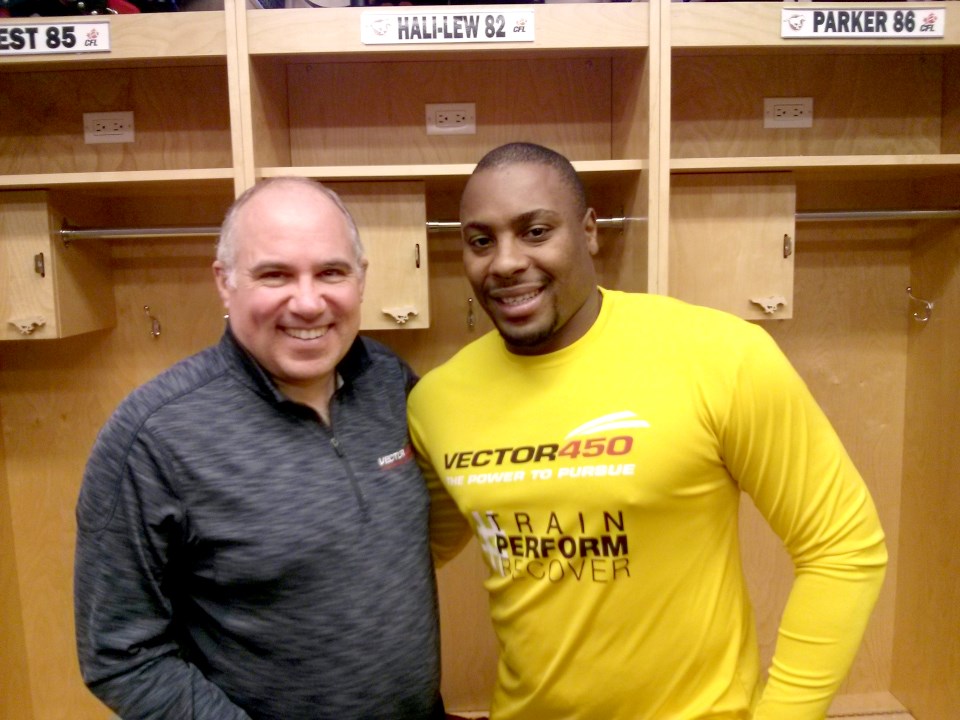Imagine if people stricken with the coronavirus could be sent home from the hospital with a vial of nasal spray and told to simply self-isolate for a couple of weeks?
IGY Life Sciences, a pioneering Thunder Bay biotechnology company, is on the clinical path to do just that.
IGY specializes in the extraction, development and commercialization of chicken egg yolk immunoglobulin (IgY), a generally considered safe natural antibody, that's recognized in the research community for its ability to control infectious disease of bacterial and viral origins.
The company has a therapeutic solution that's being tested in order to fast-track the new drug and deliver the treatment to physicians by the winter of 2020-21, potentially in time for the second wave of the coronavirus.
Out in Alberta, the company has big plans afoot to scale up their Alberta production facility in anticipation of a huge market demand for their product from pharmaceutical companies and world governments.
"It will be global," said Terry Dyck, president-CEO of IGY Life Sciences. "It will be absolutely massive."
Want to read more stories about business in the North? Subscribe to our newsletter.
The anti-COVID-19 (therapeutic) antibody they've developed – dubbed IgY-110 – is in the pre-clinical stage and is being tested at the National Microbiology Lab in Winnipeg. IGY expects to move quickly into preclinical trials.
If all goes well, IgY-110 could move swiftly along the drug development pipeline to begin human trials by early 2021.
A Michigan contract research organization, MMS Holdings, is helping them to expedite through the regulatory process. Their target market for the IgY-110 therapetic is those with diminished immune systems, like the elderly, with whom an eventual COVID-19 vaccine may not be effective.
"As we age, our body's ability to produce antibodies declines with age," said Dyck. "That's why vaccines work less and less."
The nasal spray therapeutic is intended to treat those infected with COVID-19 by controlling and blocking its spread. Once proven to be effective as a therapeutic (to heal the disease) they want to reintroduce it as a prophylactic (for disease preventation) to allow government health agencies to stockpile it for future outbreaks.
Since Dyck started the company in 2009, IGY Life Sciences has been developing nutraceutical products built around purified immunoglobulin, considered a natural antibody to boost the human immune system.
One of their supplement products is Vector 450, a sports nutrition supplement to help elite athletes in their training recovery and to heal injuries.
They're also working on an animal product to combat African Swine Fever.
Since the mid-2000s, research has shown the IgY antibody pulled from chicken yolks was shown to be effective in neutralizing SARS (Severe acute respiratory syndrome) and cystic fibrosis.
When the pandemic hit this spring, Dyck suggested to colleagues that they try to produce a nasal spray for COVID-19, "which is another form of SARS."
To advance the project, he assembled a COVID-19 research team with experts from University of Manitoba, Dalhousie University, Wayne State University and the Public Health Agency of Canada.
For patients, the nasal spray will be obtained through a doctor, administered at a hospital, or he envisions governments setting up COVID-19 clinics as a preventative measure.
Dyck said they'll either do contracts directly with government organization or use major pharmaceutical companies as distributors.
To prepare for the expected market demand, the company is building a new facility that will have "10 times" the production capacity of their existing 10,000-square-foot plant. It's expected to be in production by year's end.
Through its own proprietary extraction process, the Calgary-area plant is solely focussed on the extraction and purification of the antibody.
Taking the liquid antibody and bottling it as a nasal spray would be done by a U.S. company that Dyck has already lined up. Should they choose to manufacture a capsule, Dyck said there are Canadian facilities available.
Dyck said they're keen to test the antibody against other forms of coronavirus.
"If we can demonstrate that it's cross-protective across the coronavirus family, then governments could stockpile this antibody for the next pandemic."
Dyck said his company has been promoting use of IgY antibodies to agencies like the U.S. National Institute of Health and the World Health Organization (WHO) for years, as part of pandemic preparedness planning, without much apparent interest or research funding support.
"Trillions of dollars of GDP has blown up and we cannot afford to make this mistake again.
"I think this is going to change that dichotomy somewhat and put some additional funding into this kind of research."
The company is also working on an antibody solution in the form of a preventative nasal spray for every known and unknown form of influenza.
"We would foresee a universal IGY nasal spray for influenza. Every year you would get a five-day dose and re-immunize yourself for the influenza season," said Dyck.
"After we finish COVID, that'll be one of the next applications that we focus on."
Dyck said it would eliminate the annual guesswork done by the WHO every February as to which three or four strains of influenza are going to emerge in the next flu season.
When the flu vaccine is made every year, the vaccine is tweaked to the constantly changing head of the influenza virus.
"If you think of it like a dandelion with that mutating head, it's on one of two different stalks. The base of that influenza has course stalks which never change. If we made the antibody for the stalk – not the mutating head – once you eliminate the stalk, the virus can't replicate."




